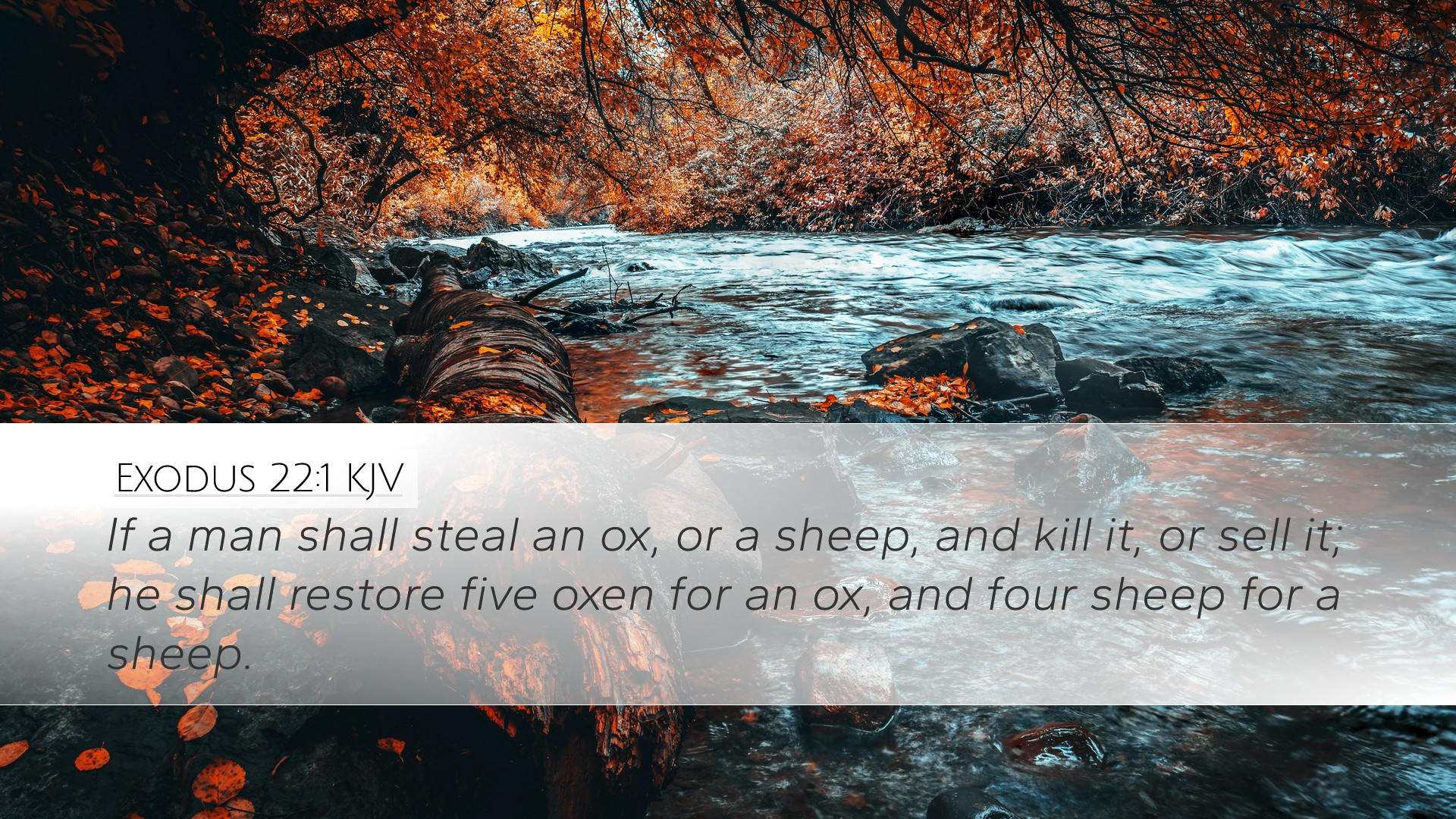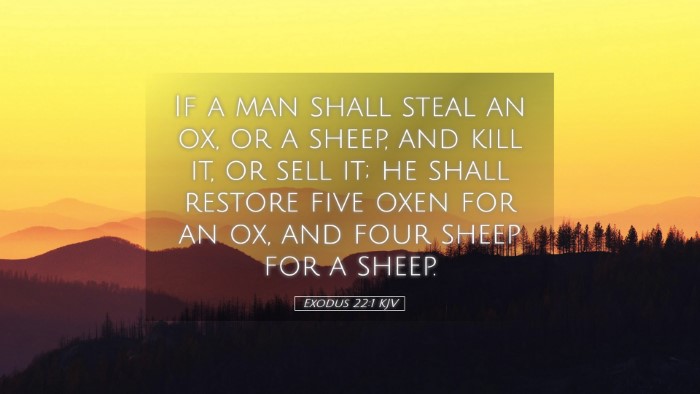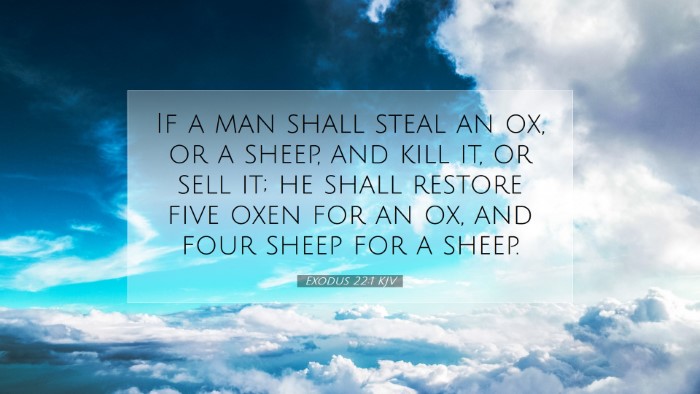Exodus 22:1 - A Comprehensive Commentary
Verse Text: "If a man shall steal an ox or a sheep, and kill it, or sell it; he shall restore five oxen for an ox, and four sheep for a sheep."
Introduction
The verse Exodus 22:1 forms part of the broader ethical and legal instructions given to the Israelites, delineating how to address cases of theft concerning livestock, specifically oxen and sheep. This statute reveals not only the societal values of Ancient Israel but also the divine principles governing fairness and restitution.
Context and Background
This passage comes amid various laws provided by God to Moses for the Israelites, intended to guide them in establishing a just society after their liberation from Egypt. The laws are characterized by a system of restitution that underscores the holiness of property rights and the moral imperative of restoring what is wrongfully taken.
Meaning and Implications
The severity of the restitution already implied in the verse is significant. The specific mention of five oxen for one ox and four sheep for one sheep illustrates a principle of penalty that serves both punitive and restorative purposes.
Divine Justice
According to Matthew Henry, this law emphasizes the principle of divine justice that operates under the values of compensation proportional to the crime. Theft is not merely the act of taking; it undermines the communal trust and order. Consequently, the offender is required to compensate not only for the loss incurred but also to acknowledge the wrongness of their actions.
Restitution and its Social Impact
Albert Barnes notes that the ratios prescribed (five and four) reflect a system intended to protect property rights within the community. This reflects an understanding that livestock was valuable, and theft would have devastating implications on a person's livelihood. Therefore, the law fosters a sense of accountability and encourages a moral economy where righteousness prevails, and restoration is prioritized.
Nature of Theft
To delve deeper into the nature of theft, Adam Clarke elaborates that stealing livestock, specifically, was an act that could lead to severe consequences for the thief, both socially and spiritually. By providing stringent penalties, this law deters potential thieves by instilling fear of the repercussions, yet it simultaneously offers hope for restitution, a chance for the thief to restore the relationship disrupted by their actions.
Practical Applications
For modern leaders—pastors, students, and theologians—Exodus 22:1 serves as a pertinent reminder of the ethical frameworks within which they are called to operate. The legislation not only defines the value of property but also illustrates the importance of living in harmony and peace within communities.
1. Ethical Stewardship
The verse encourages reflection on the stewardship of resources. Followers of Christ are reminded to respect the property and possessions of others as a demonstration of love and integrity, echoing the fundamental commandments given in the Scriptures.
2. Understanding Wrongdoing
In light of this text, modern society should cultivate a deeper understanding of wrongdoing and its implications. The concept of restitution is crucial, not merely in legal terms, but also in moral and spiritual restoration. Churches and communities are served well when they promote dialogues around forgiveness, accountability, and restoration.
3. Community Building
Further, these insights can be utilized to build communities characterized by mutual respect and care. This passage invites leaders to think critically about how they can facilitate environments that prioritize reconciliation and justice, promoting social teachings that cut across various societal problems related to theft, injustice, and responsibility.
Conclusion
Exodus 22:1 presents a fundamental aspect of Biblical law that is rich in ethical implications and societal restrictions aimed at preserving order and righteousness. By examining this verse through the lenses of major public domain commentaries, we glean not only a historical understanding but timeless principles that resonate deeply within the framework of a just society today. For pastors, students, and scholars alike, this passage serves as a touchstone for exploring themes of justice, restitution, and ethical living in their contexts.


